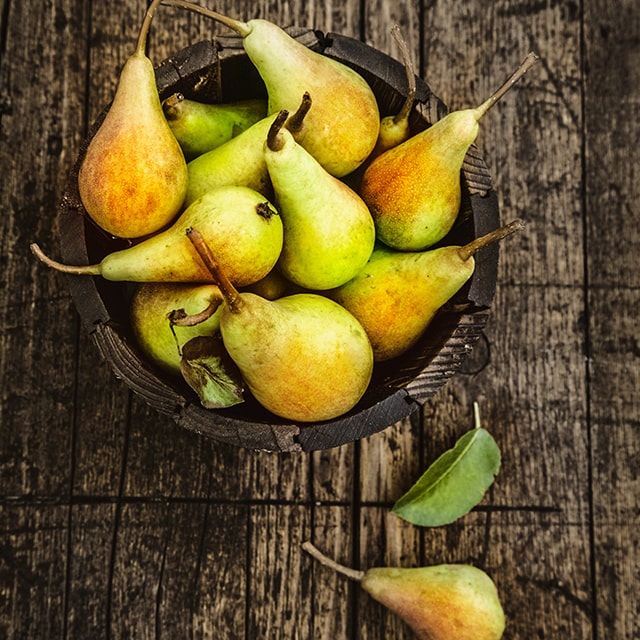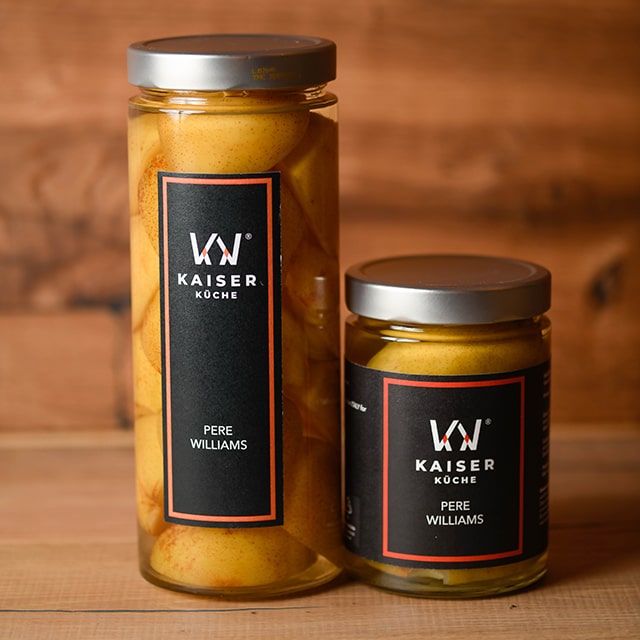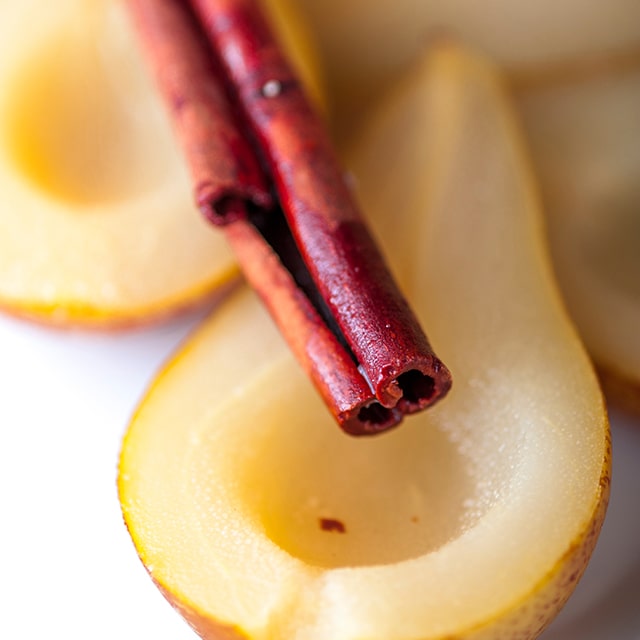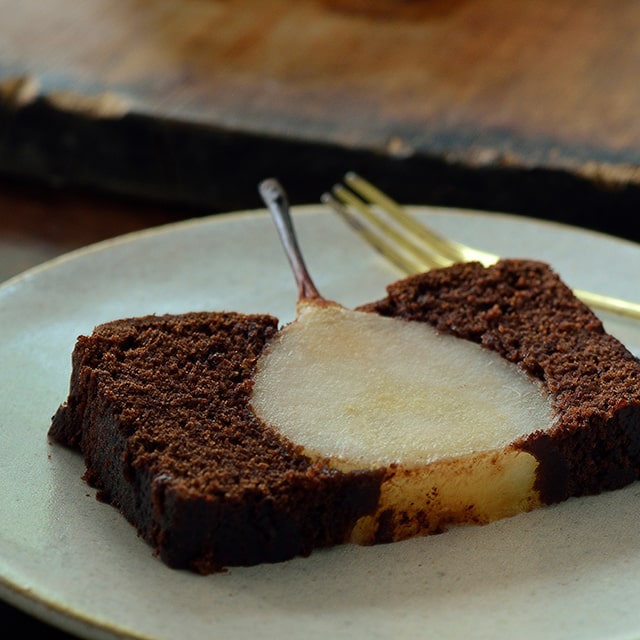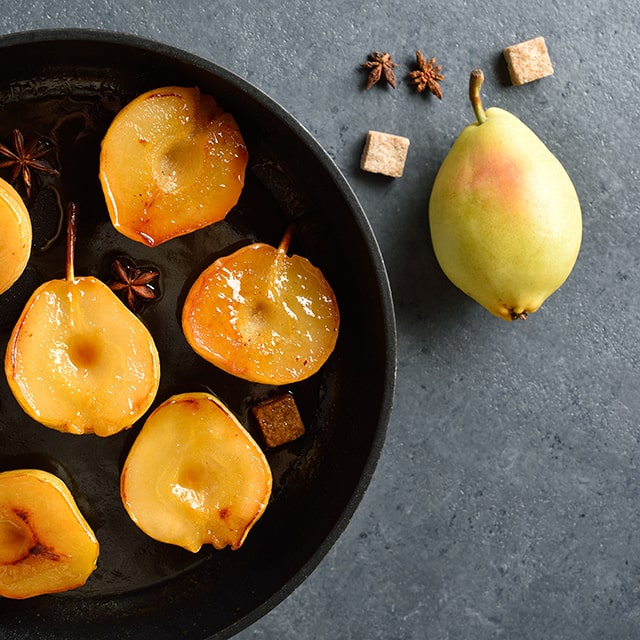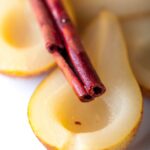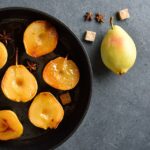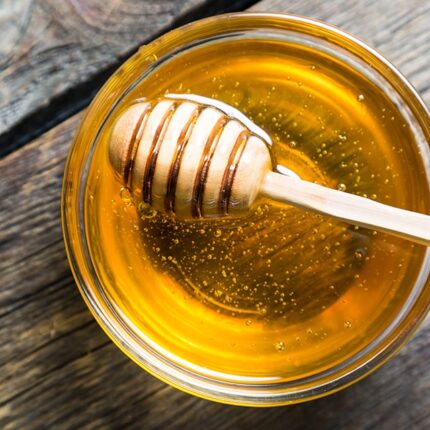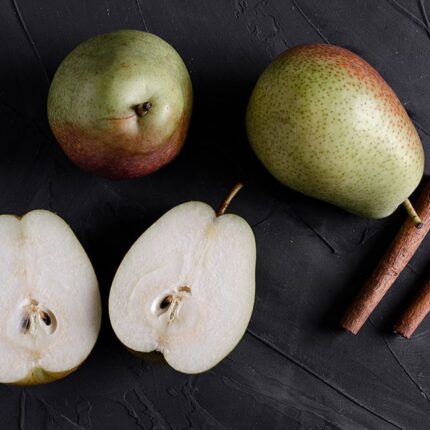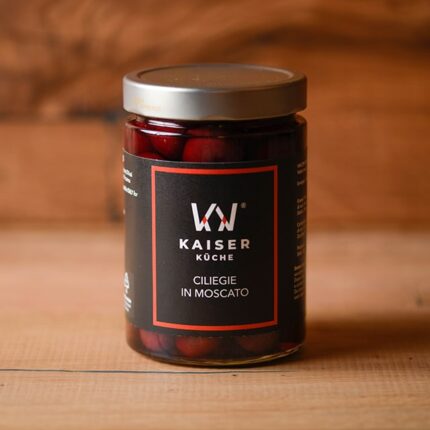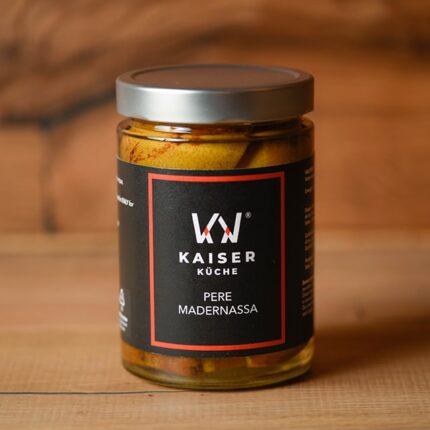Williams Pears 570g / 1050g
€20,00 – €32,00Price range: €20,00 through €32,00
This is an ancient variety of English origin, selected in the late 1700s and widely cultivated in Italy, primarily in the Po Valley.
Extremely fresh and juicy, with its firm and compact flesh, it’s the perfect pear for syrup.
Cut into pieces while preserving the skin, it isn’t cooked to retain its nutritional characteristics; instead, it’s preserved in water and a small amount of cane sugar, without the addition of colorings or preservatives. It can be served to accompany aged cheeses with a strong taste, such as Parmesan or Pecorino. It pairs excellently with porridge or ice cream, and it’s great for baking desserts. For a quick dessert, slice the pears, brush with a little apricot jam, sprinkle with cinnamon, and microwave for a few minutes.
ALCOHOLIC FERMENTATION
The preparation of fruit in syrup has ancient origins linked to the discovery of alcoholic fermentation.In fact, the sugar naturally present in the fruit and the small amount of added sugar are capable of, through fermentative processes, turning into alcohol and preserving the raw fruit, cut into pieces, in the liquid that forms.
Williams pears have an excellent effect on the intestine, normalizing its functions, which is why they are recommended especially in case of constipation. Furthermore, they support the immune system, heart, and bones, regulate the body’s acid-base balance, and are a beneficial source of antioxidants.
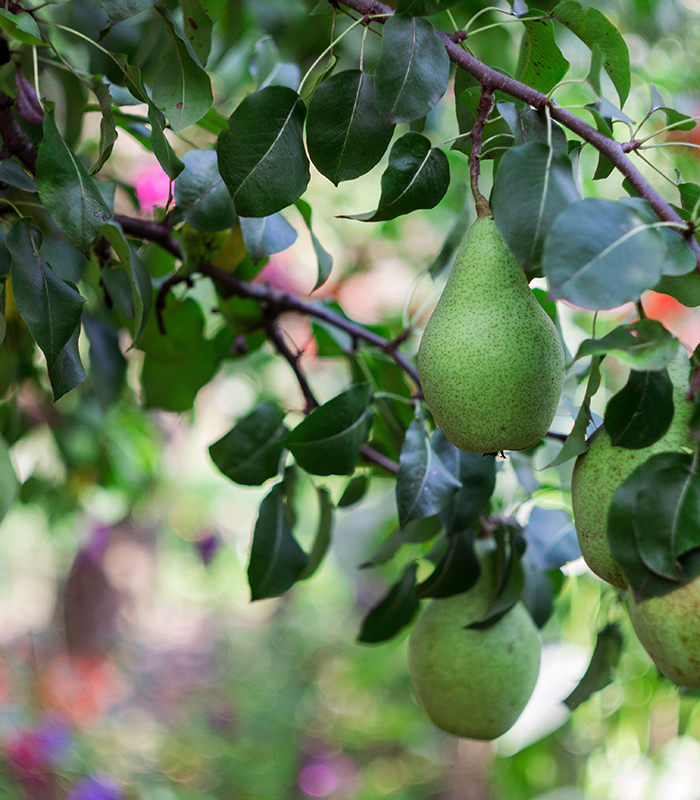
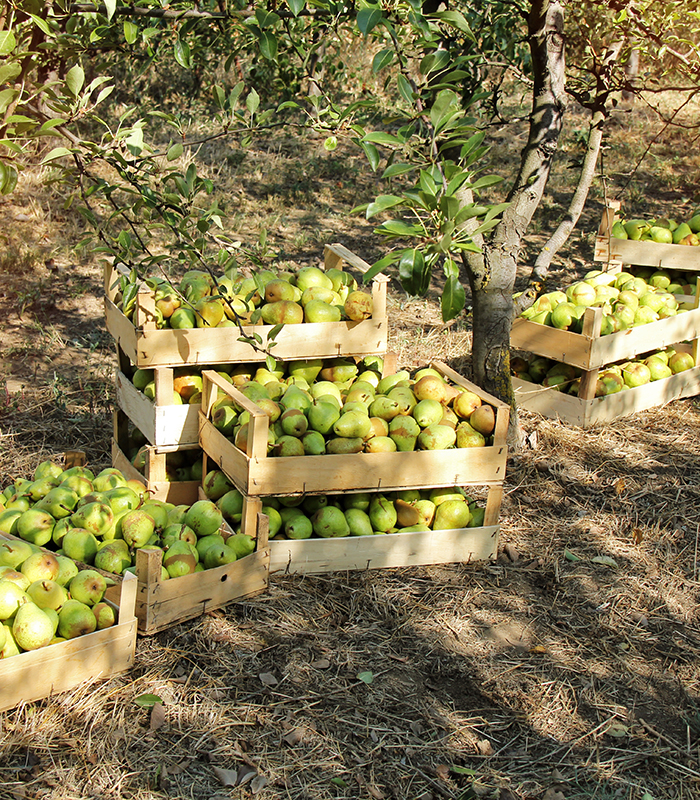
| Ingredienti |
Williams Pears, water, cane sugar. |
|---|---|
| Conservazione |
To be stored in a cool, dry place, away from sources of light and heat. After opening, store in the refrigerator (4°C) and consume within a few days. |
| Peso netto |
570g (drained weight 360g) / 1050g (drained weight 720g) |
Average Nutritional Values per 100g of product:
Energy value KJ 315 / kcal 74, Fats <0,5 g (of which saturated fatty acids <0,1 g), Carbohydrates 17 g (of which sugars 16 g), Proteins <0,5 g, Salt <0,01 g.

